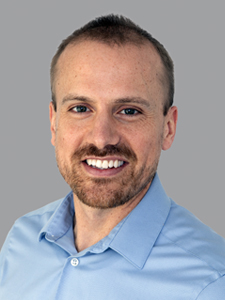by Jarod Conley, MD
Dermatologist at Boulder Medical Center
Living in beautiful and sunny Boulder County, Colorado, can positively and negatively affect our health. Moderate sun exposure can bring benefits such as stronger bones, improved moods throughout the year, and a more robust immune system. However, living at a higher elevation also means that we are exposed to about 25 percent more ultraviolet radiation from the sun compared to sea level. Therefore, although we enjoy many sunny days in Colorado, knowing the increased risks of long-term high-altitude sun exposure is crucial. The sun’s ultraviolet radiation is the leading cause of skin cancer, and years of exposure can cause hyperpigmentation, thinning of the skin, and up to ninety percent of wrinkles.
How can I protect my skin at higher altitudes?
Here are a few ways you can avoid damage and decrease your risk of skin cancer :
- While sunscreen helps filter UV damage, there is no such thing as “proper sunblock.” As a dermatology professional, I consider sunscreen a backup measure to protect skin that cannot be covered by physical protection, such as clothing, hats, and sunglasses. Light-colored, long-sleeve shirts and pants work well and are often more accessible than applying sunscreen and remembering to reapply every one to two hours continually;
- Self-tanning creams are fine, but from a dermatology standpoint, tanning beds are not. The link between tanning bed use and increased risk of melanoma, the most dangerous form of skin cancer, has been firmly established;
- Wear sunscreen when driving or working near windows. Ultraviolet radiation from the sun does pass through the glass, and sun damage often occurs more on the left side of the face due to driving;
- In addition to sun avoidance and sun protection, it is essential to have your skin checked regularly by your primary care physician and dermatologist.
What are the best techniques for applying sunscreen?
It’s essential to apply sunscreen for 15 minutes before going outside. This enables the ingredients to bind to the skin thoroughly. A good rule of thumb is to use an amount equal to the size of a shot glass for your entire body. Reapplying sunscreen is as important as your first application. After that, reapply every one to two hours, especially if you are sweating or swimming. Here are a few additional sunscreen tips:
- Choose an SPF of 30. Numbers above 30 do not offer a significant increase in UV protection. It is better to reapply than use a high SPF;
- Choose a sunscreen with zinc oxide and/or titanium dioxide as ingredients. These mineral-based ingredients also offer physical UV protection, meaning they form a barrier on the skin that reflects UV radiation rather than absorbing it. As a result, sunscreen with these ingredients also protects you from UVA and UVB, satisfying broad-spectrum protection requirements. In addition, zinc and titanium can be less irritating than chemical sunscreens, an essential consideration for sensitive skin.
What are the best sunscreens for the body and face?
Numerous excellent sunscreen brands are in the market, and it might take some trial and error to identify the one that suits your skin type. Check out the following sunscreen brands that contain zinc and/or titanium:
- Badger Balm
- Blue Lizard
- Cetaphil
- Goddess Garden Organics
- Thinksport
- VaniCream Sunscreen (Sport) Available at the Boulder Medical Center Pharmacy
Here are a few additional recommendations if you are looking for a lighter daily moisturizer with zinc and/or titanium for your face:
- Alastin Skincare SilkSHIELD All Mineral Sunscreen – Available at Boulder Medical Center (BMC) Dermatology
- Alastin Skincare Hydratint Pro Mineral Sunscreen – BMC Dermatology
- Cetaphil Daily Oil-Free Facial Moisturizer with Sunscreen
- Elta MD Skincare Tinted Facial Sunscreen – BMC Dermatology
- VaniCream Facial Moisturizer – Boulder Medical Center Pharmacy
Resources
Check your local UV Index Report for the strength of the sun’s UV rays in your area. Here are a few links to local reports:
 About Jarod Conley, MD
About Jarod Conley, MD
Dermatology at Boulder Medical Center
Dr. Conley is an expert in medical dermatology and cares for patients of all ages. His approach to patient care is focused on active patient involvement. He believes in presenting various treatment options and empowering patients to choose the one most suits their needs. Dr. Conley does not offer any cosmetic services.
- Dr. Conley’s Full Profile
- To make an appointment, call: 303-440-3013

